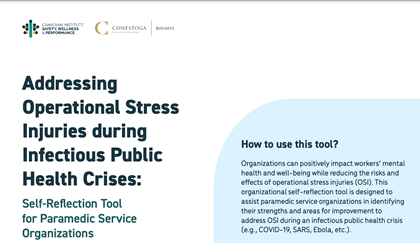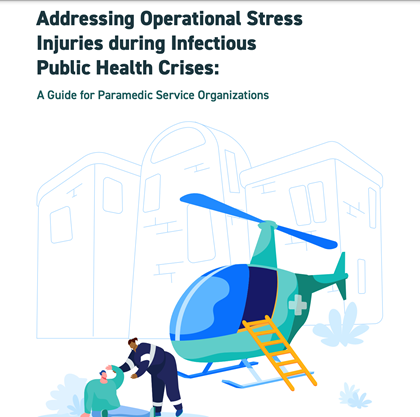Archive
-
2025
-
2024
-
2023
-
2022
-
2021
-
2020
-
2019
-
2018
-
2016
-
2013
Category
Supply chains: reduce the bullwhip effect and increase visibility
The bullwhip effect is an extreme change in supply availability in a supply chain generated by a small change in demand, and is exacerbated when the supply network is global and contains hundreds of suppliers.
Digital Simulation of Provincially Licensed Meat Plant Food Safety Training- Poster Presentation
Good Manufacturing Practices (GMP) are the operational and environmental conditions required to produce safe foods. They ensure the environment of food production promotes food safety and that all ingredients and packaging materials are handled safely.
Addressing Operational Stress Injuries during Infectious Public Health Crises: Self-Refection Tool for Paramedic Service Organizations
Organizations can positively impact workers’ mental health and well-being while reducing the risks and effects of operational stress injuries (OSI). This organizational self-refection tool is designed to assist paramedic service organizations in identifying their strengths and areas for improvement to address OSI during an infectious public health crisis (e.g., COVID-19, SARS, Ebola, etc.).
Quick start guide: Addressing Operational Stress Injuries for Infectious Public Health Crises
This Quick Start Guide outlines recommendations based on Ten Organizational Elements for paramedic service organizations to address OSI during infectious public health crises such as the COVID-19 pandemic.
Addressing Operational Stress Injuries during Infectious Public Health Crises: A Guide for Paramedic Service Organizations
This Guideline provides a series of evidence-informed recommendations outlined as Ten Organizational Elements, which lay the foundation for organizational resiliency during an infectious public health crisis.






